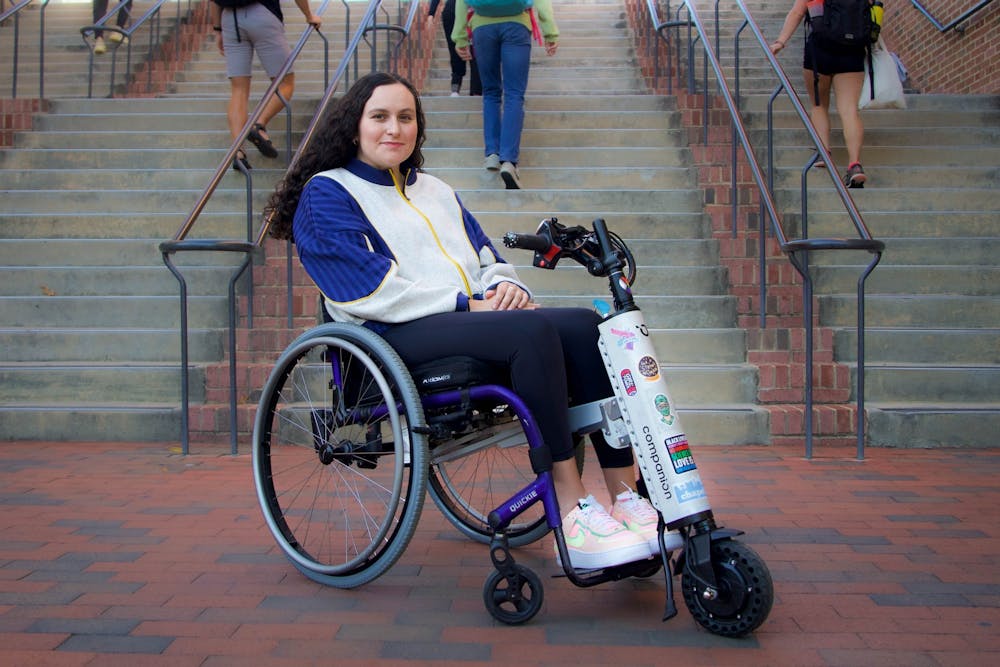Eleanor Bolton does not feel like a priority at UNC.
Bolton, a first-year studying political science and economics, uses a power wheelchair to navigate campus. She said she has noticed issues in availability of mobility aids at the University, an experience that illuminates broader accessibility challenges of UNC's campus and academics for students with disabilities.
“My experience with accessibility at UNC specifically has been pretty fragmented or disjointed,” Bolton said.
While push buttons, automatic doors, elevators and ramps are available as alternative options on campus, they often don’t work or are sporadically available, Bolton said.
“In some areas, I can navigate pretty well but in other areas I have to go 30 minutes out of my way compared to my able-bodied peers because there’s not a ramp or something like that,” Bolton said.
Bolton said the prestige and reputation of UNC led her to believe that there would be more opportunities for accessibility available to her as a student.
After arriving on campus, Bolton said she quickly realized that easy accessibility is not always a reality for students with disabilities at UNC.
“I feel like UNC markets itself as a very inclusive space, and in some ways it is, but there are other areas that they absolutely have not considered the perspectives or needs of disabled students,” Bolton said.
Laura Saavedra, a first-year studying neuroscience, also uses a wheelchair. She said that in addition to physical barriers of navigating campus in day-to-day life — such as wheelchair tires getting caught where missing bricks are in the Pit — these challenges interfere with the academic experiences of students.



